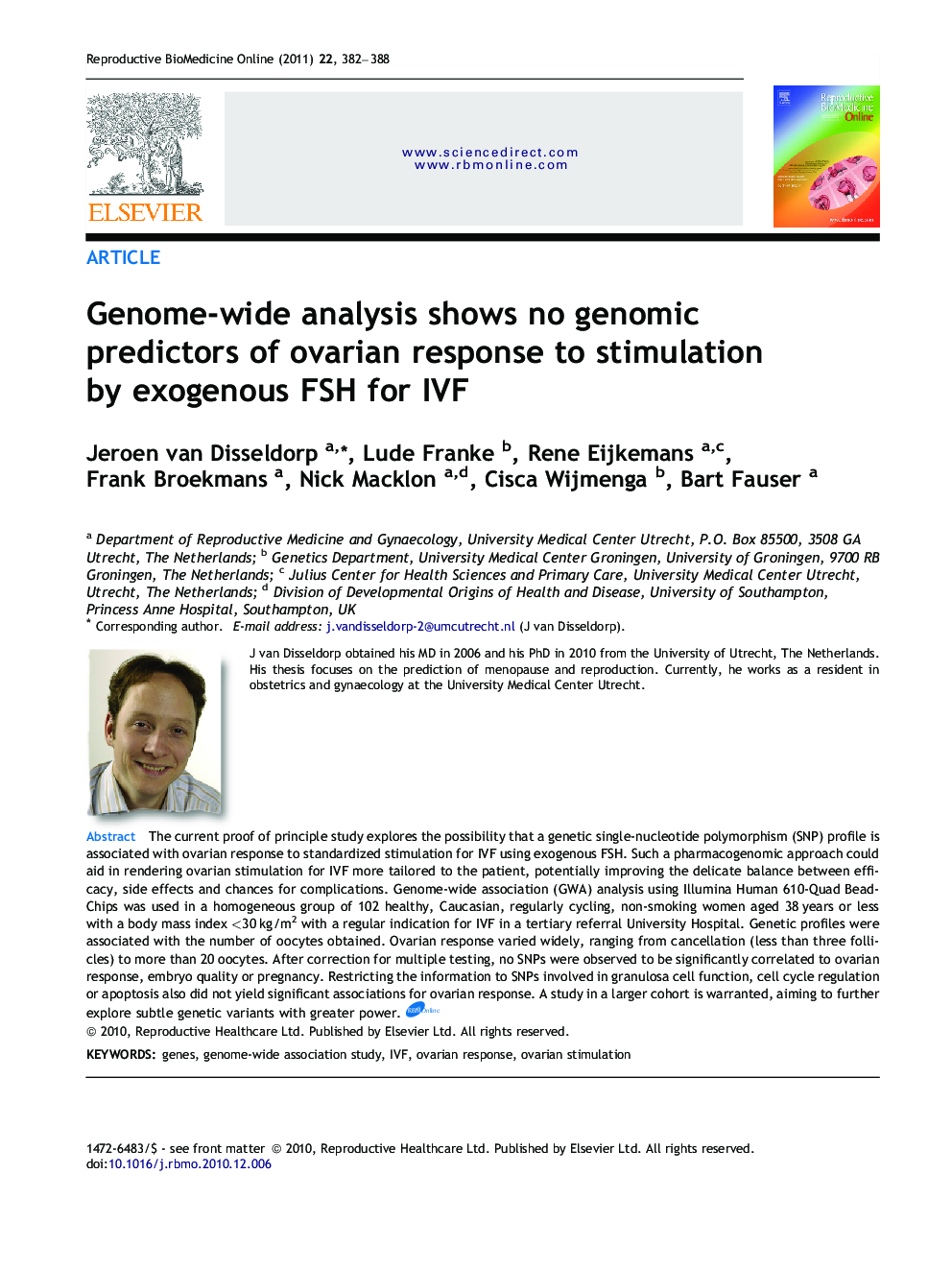| Article ID | Journal | Published Year | Pages | File Type |
|---|---|---|---|---|
| 3971732 | Reproductive BioMedicine Online | 2011 | 7 Pages |
The current proof of principle study explores the possibility that a genetic single-nucleotide polymorphism (SNP) profile is associated with ovarian response to standardized stimulation for IVF using exogenous FSH. Such a pharmacogenomic approach could aid in rendering ovarian stimulation for IVF more tailored to the patient, potentially improving the delicate balance between efficacy, side effects and chances for complications. Genome-wide association (GWA) analysis using Illumina Human 610-Quad BeadChips was used in a homogeneous group of 102 healthy, Caucasian, regularly cycling, non-smoking women aged 38 years or less with a body mass index <30 kg/m2 with a regular indication for IVF in a tertiary referral University Hospital. Genetic profiles were associated with the number of oocytes obtained. Ovarian response varied widely, ranging from cancellation (less than three follicles) to more than 20 oocytes. After correction for multiple testing, no SNPs were observed to be significantly correlated to ovarian response, embryo quality or pregnancy. Restricting the information to SNPs involved in granulosa cell function, cell cycle regulation or apoptosis also did not yield significant associations for ovarian response. A study in a larger cohort is warranted, aiming to further explore subtle genetic variants with greater power.The current proof of principle study explores the possibility that small genetic variations (single-nucleotide polymorphisms or SNPs) are associated with the number of oocytes obtained after standardized stimulation for IVF using exogenous FSH. Such a pharmacogenomic approach could aid in rendering ovarian stimulation for IVF more tailored to the patient, potentially improving the delicate balance between efficacy, side effects and chances for complications. Genome-wide association analysis using Illumina Human610-Quad BeadChips was used in a homogeneous group of 102 healthy, Caucasian, regularly cycling, non-smoking women aged 38 years or less with a body mass index below 30 kg/m2 with a regular indication for IVF in a tertiary referral University Hospital. Ovarian response varied widely, ranging from cancellation (less than three follicles) to more than 20 oocytes. After correction for multiple testing, no single nucleotide polymorphisms were observed to be significantly correlated to parameters reflecting oocyte yield, ovarian sensitivity to stimulation or oocyte quality. Restricting the information to SNPs involved in granulosa cell function, cell cycle regulation or apoptosis also did not yield significant associations. A study in a larger cohort is warranted, aiming to further explore subtle genetic variants with greater power.
